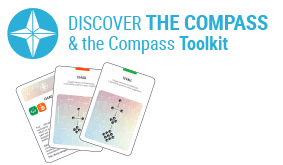Mobile Seamless Learning for the 21st century
/
How can mobile technology benefit learning?
Using mobile devices for learning is a logical extension of our life in this tech-centric world. Undoubtedly, technologies affect learning in various ways. Information and Communication Technologies (ICTs) grant access to knowledge to all people regardless of where or who they are. We can now learn whenever the need arises. Learning is no longer limited to one location, nor does it follow a strict schedule.
However, despite the opportunities ICTs present, there are certain constraints mobile learning needs to deal with, such as digital literacy, data security, and infrastructure[i]. A customized mobile learning experience should be able to address these challenges.
How mobile learning can help achieve the Sustainable Development Goals (SDGs)?[ii]
The idea of learning in contexts builds upon the fact that learning does not happen in a vacuum, but is closely linked to objects and experiences in the real world so that knowledge becomes meaningful to learners. Mobile learning provides “Just in time, Just enough, and Just for me” experiences. Therefore, learners have the mobility and are able to decide what and how to learn depending on the contexts which makes it different from being simply eLearning on a mobile device.[iii]
The ITCILO has developed a series of mobile learning projects since 2011.
By offering a learning solution flexible to learners, mobile learning can boost engagement and knowledge retention. “Mobile technology offers unprecedented power for users to access information and services that can create life-changing opportunities in education and employment,” said Brahima Sanou, Director of the Telecommunication Development Bureau of the International Telecommunication Union (ITU), at the Policy Forum on Mobile Learning held in Paris last year.
Moreover, UNESCO’s “Mobile Learning Project in Education for Sustainable Development and Micro-Gardening” [iv]has shown that ICTs can contribute positively to Education for Sustainable Development (ESD), literacy and skills development.
Register for the upcoming course on Mobile and Seamless Learning
Building upon internal expertise and partnership with internationally recognized institutions such as the Open University of the Netherlands, an upcoming course Mobile and Seamless Learning will be available in September 2018:
By the end of the Mobile and Seamless Learning course, participants will be able to:
- Have a global overview about the history of mobile learning research and development;
- Have a basic understanding of related theories (e.g. situated cognition, experiential learning, anchored instruction, cognitive apprenticeship);
- Explain how various learning contexts can be connected and integrated enabling a continuous learning experience (seamless learning);
- Explain what are the existing gaps between different learning settings;
- understand the challenge of learning transfer between different contexts, and
- Be aware of the essential technologies, tools and principles that enables seamless learning (e.g. storytelling, collaborative and networked, project-based and competence-based learning).
More information about the course: https://www.itcilo.org/en/areas-of-expertise/learning-methodologies-and-technologies/seamless-learning-design-new
Contact person: Alessia Messuti a.messuti@itcilo.org
***
Photo Credit: Alessia Messuti (Nairobi, Kenya)
References:
[i] (2017, June 28). Chinese spend 3 hours a day on their smartphones, ranking second in the world: survey. ChinaDaily. Retrieved from http://europe.chinadaily.com.cn/china/2017-06/28/content_29916917.htm
[ii] (2018, June 19). Social media use continues to rise in developing countries but plateau across developed ones. Pew Research Center. Retrieved from http://www.pewglobal.org/2018/06/19/social-media-use-continues-to-rise-in-developing-countries-but-plateaus-across-developed-ones/#table
[iii] Alhajri, R. (2016, October 10). Prospects and challenges of mobile learning implementation: a case study. Retrieved from https://www.omicsonline.org/open-access/prospects-and-challenges-of-mobile-learning-implementation-a-case-study-2165-7866-1000189.php?aid=84267
[iv] (2017, March 24). Harnessing digital skills and mobile learning for inclusive sustainable development. International Telecommunication Union. Retrieved from https://www.itu.int/en/mediacentre/Pages/2017-PR12.aspx







